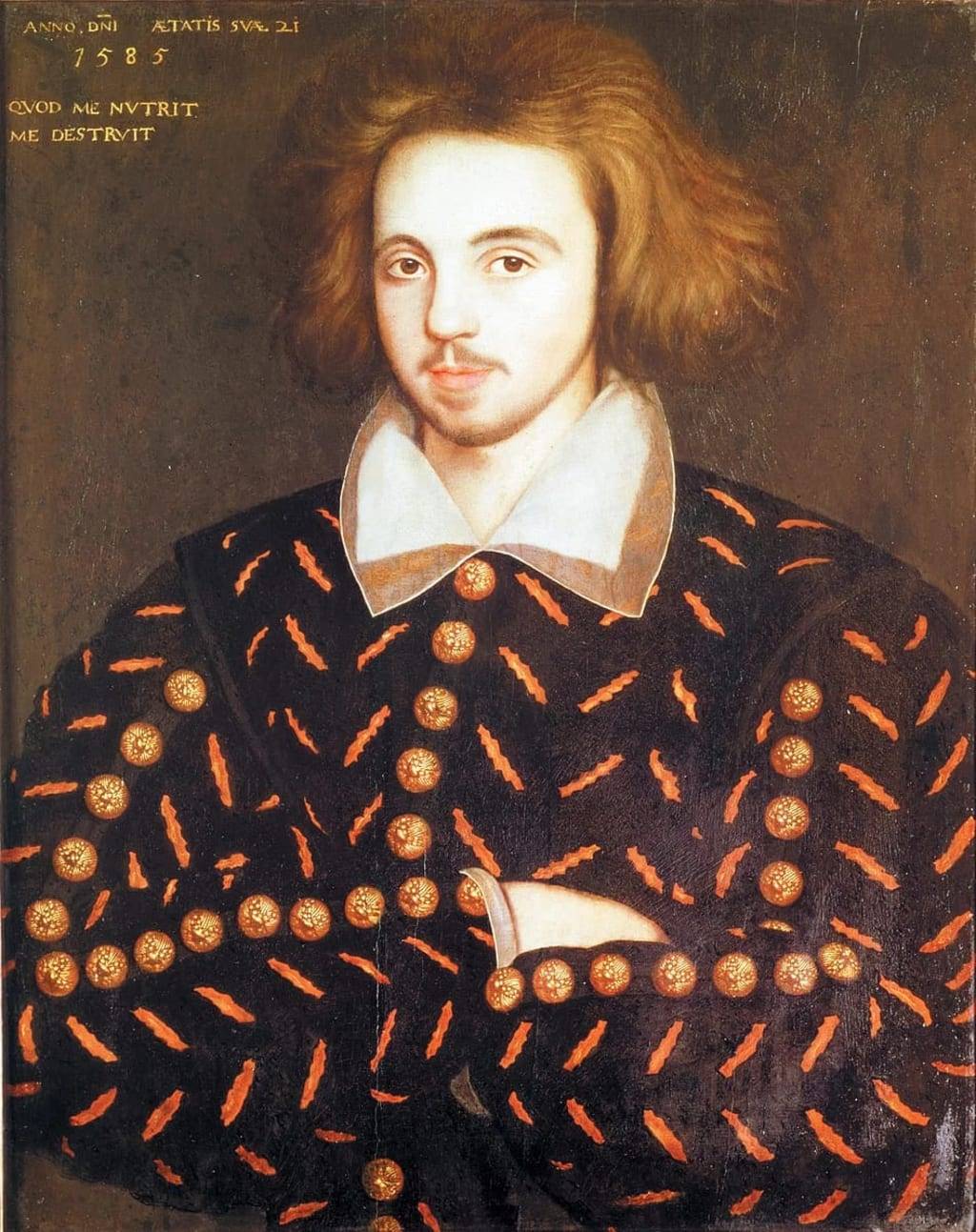Christopher Marlowe, one of Elizabethan England’s most enigmatic and brilliant playwrights, died young and under circumstances so suspicious that his death has become one of literary history’s most enduring mysteries. Known for his powerful blank verse and provocative themes, Marlowe’s meteoric rise in the late 16th century was matched only by the suddenness and violence of his demise.
Born in 1564—the same year as William Shakespeare—Marlowe quickly made a name for himself with plays like Doctor Faustus, Tamburlaine the Great, and The Jew of Malta. His work was bold, controversial, and far ahead of its time, often exploring themes of ambition, power, and the human soul’s struggle with morality. But it wasn’t just his writing that made him a controversial figure.
Marlowe lived a life steeped in intrigue. Educated at Cambridge, he nearly lost his degree due to rumors that he planned to travel to the Catholic seminary at Rheims, a move that could have branded him a traitor in Protestant England. However, Queen Elizabeth’s Privy Council intervened, stating that Marlowe had “done her Majesty good service†and should be granted his degree. This intervention has led many historians to suspect Marlowe was working as a spy for the Crown, possibly involved in secret intelligence activities.
Despite—or perhaps because of—his government ties, Marlowe lived recklessly. He was frequently in trouble with the law, often for violent or blasphemous behavior. In 1593, the authorities issued a warrant for his arrest after his roommate, playwright Thomas Kyd, was caught with papers deemed heretical. Kyd claimed they belonged to Marlowe. Soon after, rumors began to swirl that Marlowe was an atheist and a danger to the state.
Just days later, on May 30, 1593, Marlowe was dead.
The official account states that Marlowe was killed in a tavern brawl in Deptford, stabbed above the eye by Ingram Frizer during a dispute over the bill. The incident was ruled self-defense, and Frizer was quickly pardoned. But many aspects of this story don’t add up. For one, the three men present—Frizer, Nicholas Skeres, and Robert Poley—were all connected to the Elizabethan intelligence network. The fact that Marlowe died in their company has fueled speculation that his death was more than just a drunken quarrel.
Some believe Marlowe was assassinated on the orders of powerful political figures who feared the secrets he knew or the influence of his heretical ideas. Others suggest the scene was staged to fake his death, allowing him to escape prosecution or even exile. This theory, while more fantastical, gave rise to the controversial “Marlovian theory†that Marlowe went into hiding and continued to write plays under the name William Shakespeare.
The mystery deepens when considering the peculiar behavior of the authorities. The inquest into Marlowe’s death was conducted unusually quickly, and the documentation was not discovered until centuries later, in 1925. The coroner’s report also contains odd inconsistencies—such as Marlowe supposedly lying quietly for hours with the men before the fight broke out, despite the earlier warrant and threats to his life.
The true motive for Marlowe’s death remains uncertain. Was it a political assassination to silence a man who knew too much? A religious killing to stop the spread of dangerous ideas? Or simply a tragic end to a reckless genius who lived on the edge?
Over 400 years later, Christopher Marlowe’s death continues to fascinate historians, scholars, and conspiracy theorists alike. Whether viewed as a victim of political intrigue, an unlucky brawler, or a vanished genius living under an assumed name, Marlowe’s violent end is a fittingly dramatic finale for a man whose life seemed like a play he might have written himself—full of danger, intelligence, and unanswered questions.




No comments yet
Be the first to share your thoughts!